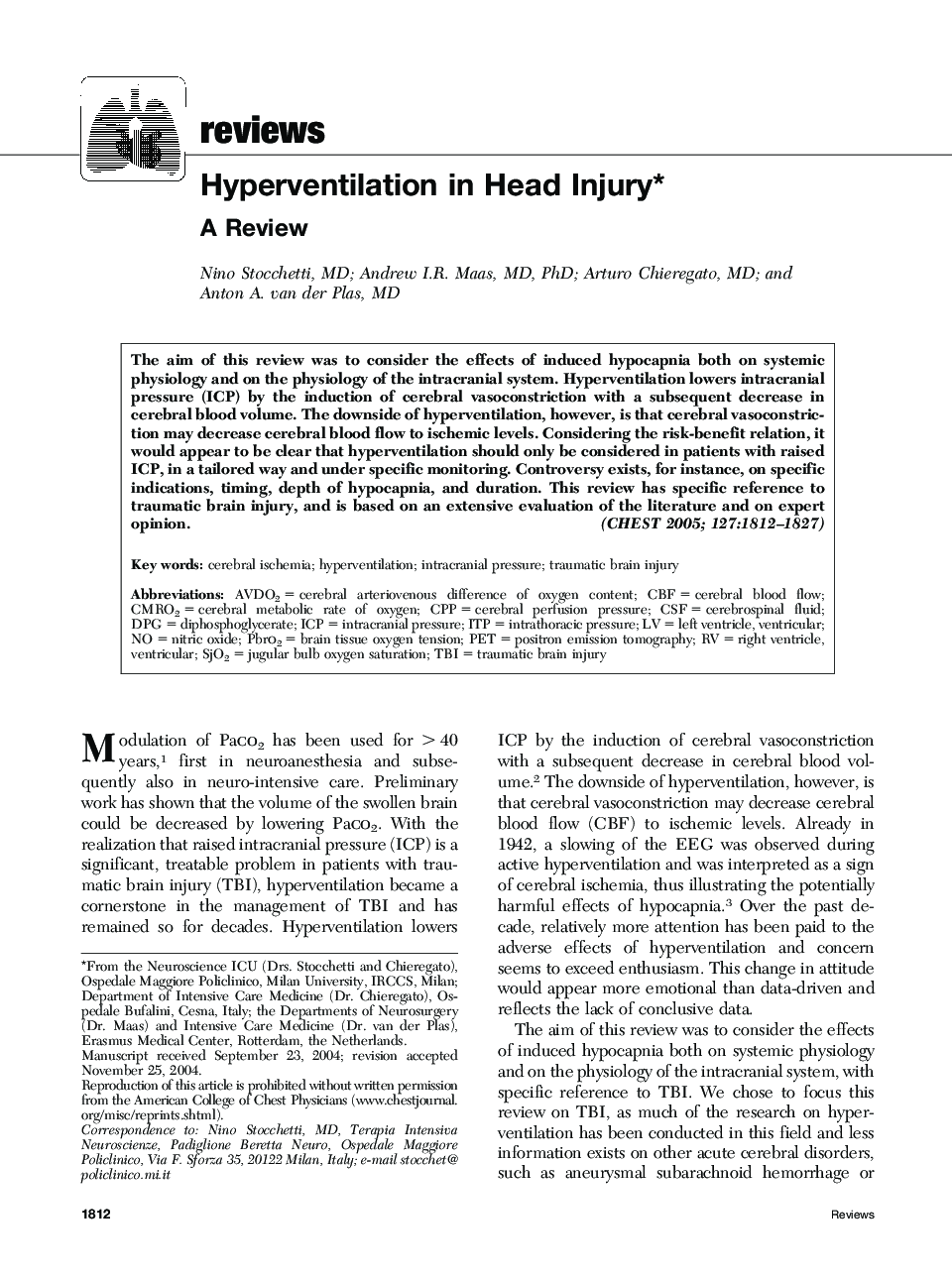| Article ID | Journal | Published Year | Pages | File Type |
|---|---|---|---|---|
| 9161657 | Chest | 2005 | 16 Pages |
Abstract
The aim of this review was to consider the effects of induced hypocapnia both on systemic physiology and on the physiology of the intracranial system. Hyperventilation lowers intracranial pressure (ICP) by the induction of cerebral vasoconstriction with a subsequent decrease in cerebral blood volume. The downside of hyperventilation, however, is that cerebral vasoconstriction may decrease cerebral blood flow to ischemic levels. Considering the risk-benefit relation, it would appear to be clear that hyperventilation should only be considered in patients with raised ICP, in a tailored way and under specific monitoring. Controversy exists, for instance, on specific indications, timing, depth of hypocapnia, and duration. This review has specific reference to traumatic brain injury, and is based on an extensive evaluation of the literature and on expert opinion.
Keywords
AVdO2ICPhyperventilationSjO2DPGCBFTBICMRO2CPPTraumatic brain injuryCerebral ischemiaright ventricle, ventricularleft ventricle, ventricularBrain tissue oxygen tensionPositron emission tomographycerebral blood flowdiphosphoglycerateIntrathoracic pressureintracranial pressureCerebral perfusion pressureCSFCerebrospinal fluidcerebral metabolic rate of oxygenNitric oxideITPPET
Related Topics
Health Sciences
Medicine and Dentistry
Cardiology and Cardiovascular Medicine
Authors
Stocchetti MD, Maas MD, PhD, Chieregato MD, van der Plas MD,
